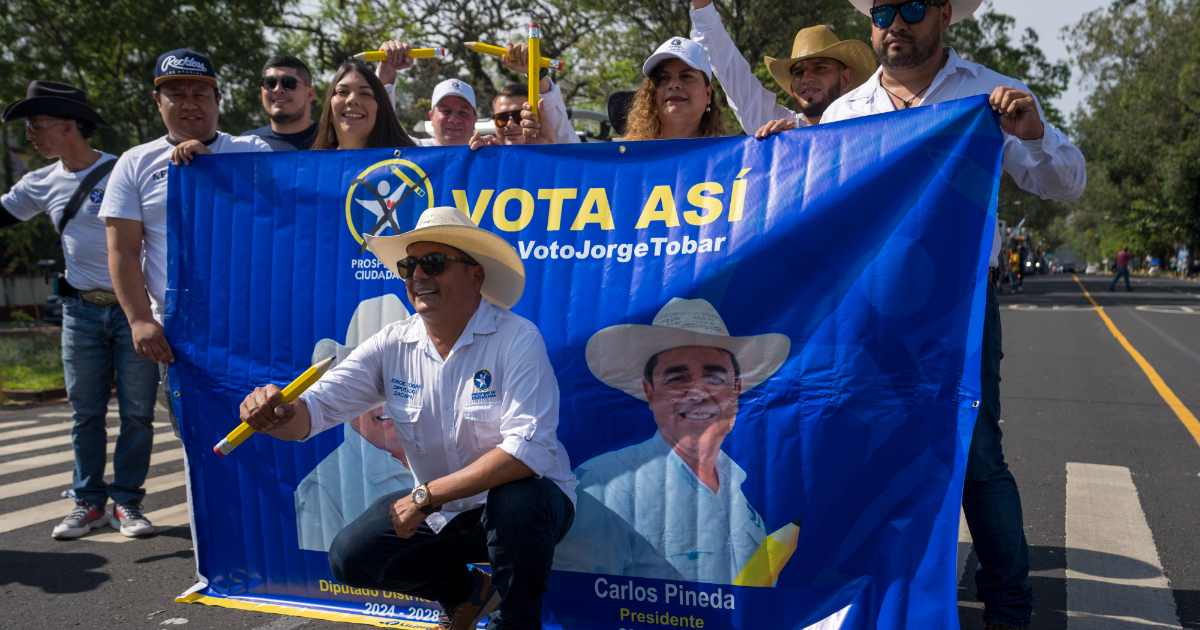by Carmen Forlenza
Il Guatemala, the most populous Central American country with more than 17 million inhabitants, will be called to the polls on June 25. If none of the presidential candidates gets more than 50% of the vote, a meeting will be held ballot on 20 August.
So far, the discussion on the elections has focused not on the electoral programs, but on the controversial decisions of the Supreme Electoral Tribunal (TSE), which led to the exclusion of several personalities, on the basis of reasons perceived as arbitrary or partisan, in favor of the political class linked to the current president Alejandro Giammattei.
Already in April, the Misión de Observación Electoral de Guatemala, a group formed by civil society, stated that the decisions of the TSE had irremediably damaged the electoral process, in a sort of “ex ante electoral fraud”. In the climate of general distrust of citizens, fueled by the TSE, pressure has been exerted for years by the government on the media and on opposition politicians, resulting in the closure of the newspaper the newspaper. Its journalists have published dozens of investigative reports during Giammattei’s presidential term and its founder, José Ruben Zamora, has been accused of recycling of money, blackmail and influence trafficking and three other journalists of the editorial staff are under investigation.
What many local and international voices call the democratic decline of Guatemala is even more surprising, considering that until 10 years ago the country was presented as a model, thanks to the Comisión Internacional Contra la Impunidad en Guatemala (CICIG), an anti-corruption task force, formed by national prosecutors supported by the United Nations , who have been investigating local politicians for years leading to the decline of former President Morales. According to activists, judges and local organizations, however, Giammattei has operated a kind of vendetta against those who had participated in the work of the CICIG, with denunciations and intimidation that prompted many to abandon an active role or even to leave the country.
Returning to the work of the TSE, among the most criticized decisions are the exclusion of the indigenous Mayan candidate and activist Thelma Cabrera and the pass to that of Zury Rios, daughter of coup leader Efrain Rios Montt. Cabrera was blocked by the Tribunal for a complaint against his candidate for vice president, the former human rights prosecutor Jordán Rodas. While article 186 of the Constitution which prohibits the candidacy for president of blood relatives of dictators, this year, it seemed to the Tribunal not relevant.
The last one excluded from the presidential race was the entrepreneur Carlos Pineda, following complaints from a rival party of irregularities in the bid. Pineda, thanks above all to his use of social networks, had appeared in a clear advantage in a Prensa Libre poll at the beginning of May, with 23% of voting intentions, followed by Sandra Torres, wife of the former president Alvaro Colom with 19.5%. Rios, who always appeared in the top positions in previous polls, scored a modest 9.2%.
The arbitrariness of the Tribunal emerges with the contradictions in admitting candidates without problems questionable such as those of Jorge Adolfo de Jesus Garcia Silva, involved in a case of corruption in the national institute of seismology, and Esduin Javier, investigated for ties to a criminal organization. Meanwhile political apathy is growing, especially among young people. According to the association dialoguesOf the 4.5 million people between the ages of 18 and 30, only 2.6 million are eligible to vote today. The absence of a public discourse on the programs of the admitted candidates is general and does not depend on the political orientation, an almost constant is the reference to security policies inspired by The Savior.
Elections are therefore expected with a low turnout, with the distrust in the electoral process created by the Tribunal, and journalists and activists returning from years of threats and limitations fail to stimulate a real debate. Probably any newly elected will immediately aim for security measures of the mold bukelian to win the favor of the population, frightened by the increase in crime rates.
